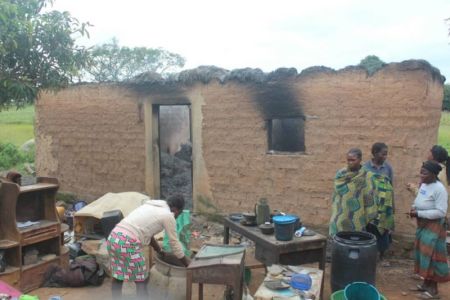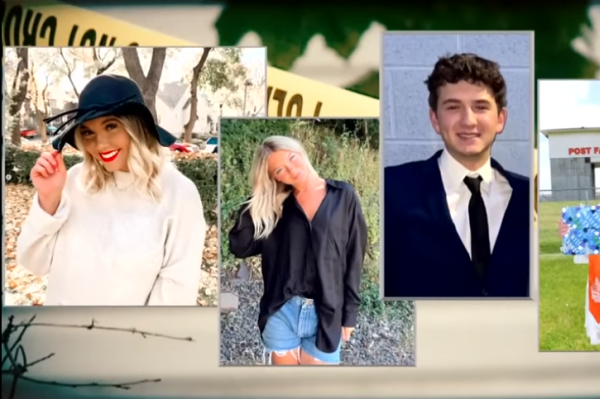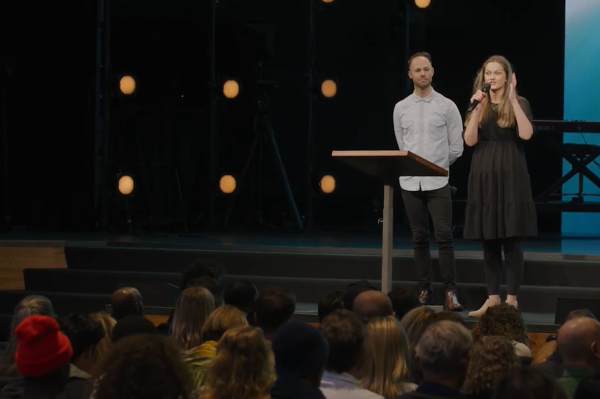At least 7 killed, over 250 houses destroyed in series of overnight attacks in Nigeria

A series of violent attacks during weekend nighttime raids in Nigeria blamed on Fulani radicals has reportedly led to the deaths of about seven people, the destruction of nearly 300 houses and the displacement of many. However, a leading Fulani advocacy group has put the blame for the violence on local youths.
Suspected Fulani militants attacked villages in Nigeria’s Miango district in the Plateau state during “unhindered and undistracted” attacks that began Saturday night into Sunday morning, according to a statement released Sunday by the Irigwe Development Association.
According to the statement, the violence resulted in around 100 acres of farmland being destroyed, at least 250 houses burned and mass displacement.
“We are calling on government and security agencies to come to our aid, as our people have been left homeless, their farms destroyed and loved ones killed," IDA Secretary-General, Comrade Danjuma Dickson Auta, said in an interview with The Daily Post.
He said these actions have “been a recurring decimal” as the many homes and farms have been destroyed by the “heartless people.”
According to the United Kingdom-based aid agency Barnabas Fund, the attack occurred in a "predominantly Christian area."
Sen. Hezekiah Ayuba Dimka, the chairman of the Senate Committee on Drugs and Narcotics who represents Plateau Central District, called on security agencies to find the perpetrators of the “barbaric” crimes, The Sun News reported.
“Week after another, communities of Riyom, Barkin Ladi, Bassa, Jos South and Jos East local government areas have come under intense attacks," the senator said. "The pattern has been the decimation of farmlands, killing and maiming as well as loss of lives in the most barbaric manner."
He emphasized the attacks should not be “glossed over,” and the perpetrators should be “brought to justice.”
“Coming as they did, and disturbing as we have witnessed them, these are not isolated cases going by the pieces of information that are circulated before the attacks take place,” he continued. “It is expected the security should be on top of the situation.”
Ezekiel Bini, the national president of the Irigwe Development Association, told This Day newspaper that assailants organized themselves into different groups that destroyed crops and looted households before setting properties on fire.
“Our people are in pains following yesterday’s attack by Fulani gunmen in some of our communities including Zanwrah, Kpachudu and Kpatenvien. What we have is a humanitarian crisis in Irigwe land," Bini stated. “So far, we have counted seven people that were killed during the attacks and nine people who sustained gunshot injuries."
“As we speak, 275 houses were burnt down and over 22,000 people displaced including women, children and the aged," he added. "Some of the displaced persons are currently taking refuge in neighbouring communities in Miango district, while many others have relocated to Jos for safety.”
However, the state chairman of Miyetti Allah Cattle Breeders Association of Nigeria, Nura Muhammad, which advocates for the Fulani pastoralists, blamed the continued violence in the region on Irigwe youths, adding that six members of the Fulani herding community lost their lives in the violence over the weekend and 11 were hospitalized.
“What happened yesterday was that the Irigwe people mobilized their kinsmen and attacked our people in Rafin Bwauna village, a settlement mainly occupied by the Muslims, Hausa and Fulani," Muhammad was quoted as telling This Day. "We tried as much as possible to inform the security but to no avail."
The United States-based religious persecution watchdog organization International Christian Concern reported that a contact in the region visited the affected area and confirmed the attack.
“We call on the international community to come to our aid,” the local ICC contact was quoted as saying. “The Nigerian government has betrayed us and allowed us to [fall] under the mercy of guns because of our faith.”
“The military cannot help by containing the situation, but they were rather on the side of the Fulani (militants),” the contact continued. “The house of the chief of Jebu Miango was burned down along with scores of other houses. It was [a burning] spree for the marauders while the security watched without saying anything.”
“Please pray… as we are helpless,” the contact added.
The attack comes as Open Doors USA reports that more Christians are murdered for their faith in Nigeria than in any other country.
In recent years, thousands of Nigerian civilians have been killed in violent attacks by Boko Haram and the Islamic State West Africa Province in Nigeria's northeast, and radicalized Hausa-Fulani herdsmen have attacked and razed predominantly Christian farming communities in Nigeria's Middle Belt.
As killings have escalated in recent years in the farm-rich Middle Belt, the government has claimed that the violence is nothing more than decades-old clashes between herding and farming communities. However, some advocates have contested that explanation and fear religious factors are also at play.
A recent report from the Anambra-based International Society for Civil Liberty & Rule of Law estimated that over 3,400 Nigeria Christians have already been killed in 2021.
Around half of Nigeria's population identifies as Christian, and there are over 95 million believers in the country. The divide between Christians and Muslims is roughly even, according to Open Doors.
Nigeria, Africa’s most populous nation, recently became the first democratic nation to be added to the U.S. State Department's list of "countries of particular concern" for tolerating or engaging in egregious violations of religious freedom under the International Religious Freedom Act.
Open Doors USA ranks Nigeria No. 9 on its 2021 World Watch List of countries where Christians face the most severe faith-based persecution for “extreme” levels of Islamic oppression.
A commissioner on the U.S. Commission on International and Religious Freedom warned in an annual report that Nigeria “will move relentlessly toward a Christian genocide” if action is not taken quickly by the government and international community.
The Global Terrorism Index ranked Nigeria as the third-most affected country by terrorism in 2020. The index reports that over 22,000 people were killed by acts of terror from 2001 to 2019.
Critics have slammed the Nigerian government for failing to thwart the terrorist activity in the country. Insurgent groups continue with violence and kidnappings and often receive ransom payments even though the government denies paying ransom to terrorists.
Emily Wood is a reporter for The Christian Post. She can be reached at: emily.wood@christianpost.com





















